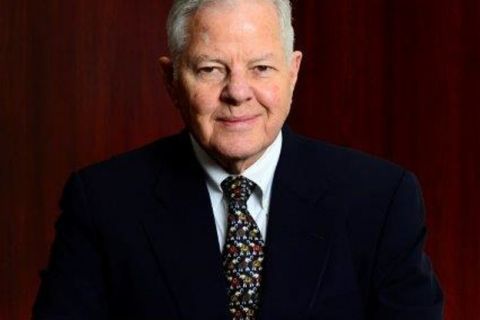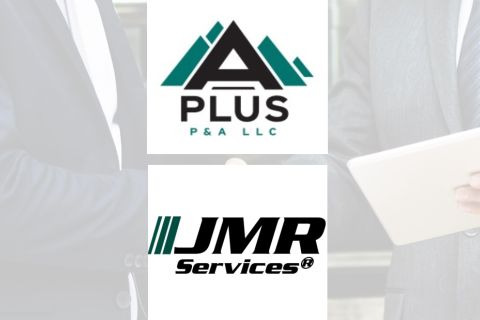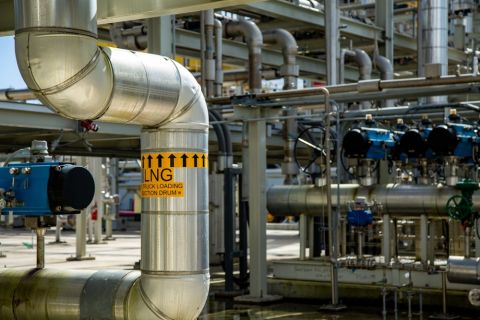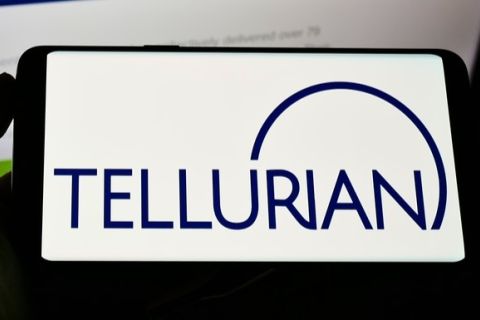Nissa Darbonne, executive editor-at-large, Hart Energy: Thank you for joining us. I'm Nissa Darbonne, Hart Energy's executive editor-at-large. I'm visiting with Vanessa Ryan. Vanessa is the manager of methane reduction for Chevron. She just spoke at the Carbon and ESG Strategies conference. Among the many, many things that she presented on was Project Astra. Tell us more.
Vanessa Ryan, manager of methane reduction, Chevron: Well, thank you. I appreciate that. So, Project Astra is a really neat collaboration that we have with other operators and the University of Texas in the Permian Basin. And what the project is, is an opportunity to scale methane emissions detection at more of a basin level. So right now we have a pilot in a particular area that has three operators, and the operators have sensors installed on all of our sites. The data from those sensors is analyzed jointly instead of individually. So we can have a lesser density of sensors, but the same level of data as if we had individually installed sensors on each of our sites.
ND: And I understand too, out in the industry, not just domestically, but globally as well, there is incredible amount of sharing of ideas, technologies and such so that everyone can participate in lowering emissions. Tell us more about this collaboration.
VR: So we really view that collaboration is critical in this issue. Our industry has a long history in the realm of safety, of working together to solve common problems. In the world of safety, we share our successes, but also our lessons learned. And very similar in the methane space. Our industry has come together in both domestic forums like The Environmental Partnership and more global forums like the Methane Guiding Principles and the Oil and Gas Climate Initiative to share what we've done that works and what we've done that doesn't work so others can learn from it.
ND: So obviously amongst, let's just say oil and gas operators, exclusive of oil field service firms, midstream and such, just oil and gas producers, the largest group just in numbers without regard here to volume of barrels of production. But the largest group in population might be 10% to 20%. Let's say we'll take 20%, but then you have 80% of these operators across, let's just talk about within the U.S. itself, that doesn't have the staffing, doesn't have the large enough operation to initiate methane reduction pilots and such. Can they access somehow all of the learnings of the 20%?
VR: Absolutely. And it's in all of our benefit that they do as an industry. So we have a number of forums where the information is widely and freely available to download on websites, and then we have more bespoke options where we help operators in a more closed fashion. So the Environmental Partnership Initiative has about a hundred companies in it right now, and those companies range vastly in size and focus. And we give those operators that join an opportunity to learn from each other, but the commitment to join is actually free. They don't have to pay anything to join. We bring the workshops and the materials to them for the most part. So we will be having a workshop in Midland next month. These sorts of opportunities mean people don't have to travel, they don't have to attend a bunch of meetings, but we we're bringing that knowledge base to the folks that are making decisions as much as possible that impact methane emissions every day.
ND: Is there just a URL or someplace where they can most easily get in?
VR: theenvironmentalpartnership.org
ND: theenvironmentalpartnership.org. Thank you so much, Vanessa.
VR: You bet.
ND: And thank you for joining us. For more information, visit hartenergy.com.
Recommended Reading
73-year Wildcatter Herbert Hunt, 95, Passes Away
2024-04-12 - Industry leader Herbert Hunt was instrumental in dual-lateral development, opening the North Sea to oil and gas development and discovering Libya’s Sarir Field.
Battalion in Compliance with NYSE American after 2023 Meeting
2024-02-13 - Previously, Battalion Oil was not in compliance with the NYSE after failing to hold an annual meeting of stockholders during the fiscal year ending Dec. 31.
JMR Services, A-Plus P&A to Merge Companies
2024-03-05 - The combined organization will operate under JMR Services and aims to become the largest pure-play plug and abandonment company in the nation.
New Fortress Energy Sells Two Power Plants to Puerto Rico
2024-03-18 - New Fortress Energy sold two power plants to the Puerto Rico Electric Power Authority to provide cleaner and lower cost energy to the island.
Tellurian Executive Chairman ‘Encouraged’ by Progress
2024-03-18 - Tellurian announced new personnel assignments as the company continues to recover from a turbulent 2023.






